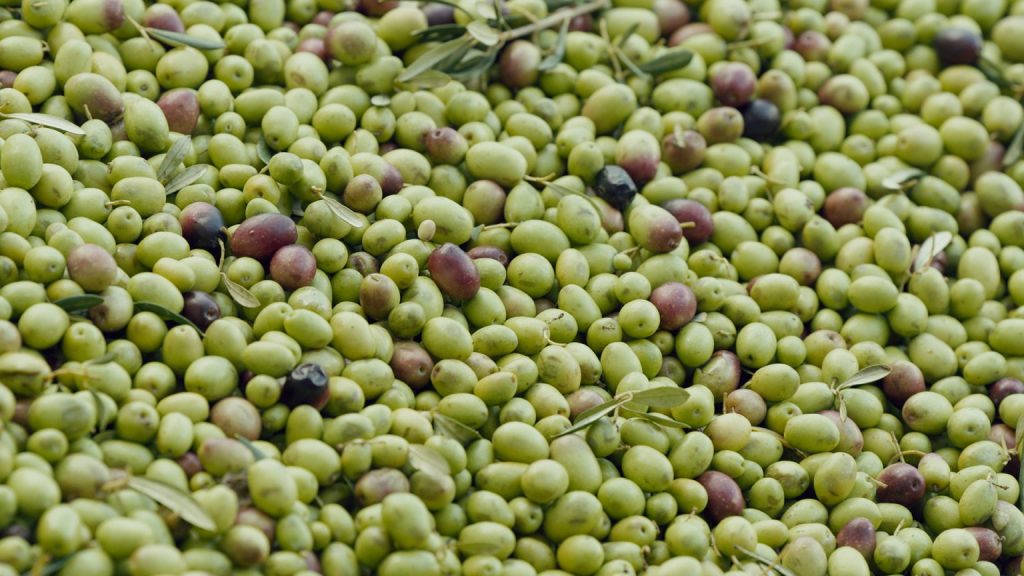


From 29 to 31 January 2026, the Fiera del Levante in Bari will host the second edition of EVOLIO Expo. The programme will be enriched with new ideas dedicated to promoting Geographical Indications and strengthening the role of protection consortia.
Geographical Indications (GIs) are now one of the most effective tools for protecting the origin and quality of products, as well as for promoting cultural and gastronomic heritage. With 42 PDO and 8 PGI certifications dedicated to olive oil, Italy stands out in the European landscape, yet still has vast untapped potential: only a limited part of Italian production is currently certified. It is precisely to highlight the benefits that Geographical Indications can offer to the entire sector that the second edition of EVOLIO Expo – scheduled from 29 to 31 January 2026 at the Fiera del Levante in Bari – will devote ample space to their strategic role, involving the main regional protection consortia and promoting a wide-ranging discussion on the future of certified supply chains.
During the three days of EVOLIO Expo – organised by Senaf on behalf of Nuova Fiera del Levante and with the support of the Department of Agriculture, Rural and Environmental Development of the Puglia Region, Pugliapromozione and the National Association of Oil Cities – the topic of Geographical Indications will be addressed through talks, conferences and institutional meetings involving representatives of protection consortia, industry experts and supply chain stakeholders, with the aim of strengthening the PDO and PGI system and promoting more effective organisational models.
Why do Geographical Indications represent an opportunity for the olive oil industry?
‘Geographical Indications,’ explains Paolo De Castro, Professor of Agricultural Economics at the University of Bologna, ‘are a powerful tool for promoting and distinguishing Italian agri-food products, capable of authentically linking the product to the territory and its cultural identity.’
‘In the olive sector, despite the presence of numerous PDOs, only a small part of production is certified. This means that there is still enormous untapped potential: commercial organisation and supply chain capacity need to be strengthened so that producers can fully exploit the benefits offered by GIs, both in economic terms and in terms of recognition on international markets.’
According to De Castro, the real driving force behind this system is represented by consortia: “The new European regulation has given protection consortia a central role not only in the control and promotion of designations, but also in the development of activities related to wine tourism and product storytelling. However, southern Italy still lags behind central and northern Italy in terms of organisation: here, it is essential to invest in tools that promote aggregation, shared governance and the active presence of consortia on the markets.”
‘In these areas, initiatives such as EVOLIO Expo,’ continues De Castro, “play an important role because they are real showcases, valuable opportunities to bring consumers closer to producers. It is essential that these events involve qualified buyers and help to raise awareness of the territories through the product, also highlighting the cultural, landscape and identity aspects linked to local history. Only in this way can we strengthen the link between certified quality, territory and storytelling, which is the key to promoting our products on global markets.”
What concrete tools are currently available to support PDOs and PGIs?
‘Italy, like other Member States, is implementing specific measures to support protection consortia in the new functions assigned to them by European regulations,’ explains De Castro. ‘We are talking about funds for promotion, direct support from the Ministry, more advanced traceability tools and the introduction of a state seal to strengthen the legal protection of designations against imitations and undue evocations. All this,’ he adds, ‘serves to make certified products more recognisable and stronger in competing on global markets, offering those who adhere to the GI system easier access to development opportunities.’
Alongside an in-depth look at the Geographical Indications system, EVOLIO Expo 2026 presents a broader programme that combines innovation, culture and the market. In particular, during the three days, three strategic macro-themes for the sector will be explored, which characterise our country and make it unique: the health benefits of extra virgin olive oil, its link with the landscape and the identity of the territories, and the potential of olive oil tourism as a lever for growth for local economies. EVOLIO Expo further strengthens its international dimension thanks to a structured calendar of B2B meetings and business matching, which will bring Italian producers into contact with delegations of buyers from Europe, the United States, Asia and the Middle East. The aim is to create new commercial opportunities and consolidate the competitive positioning of certified EVO oil in global markets. A specific focus will be dedicated to involving key players in the Ho.Re.Ca. and large-scale retail channels, both Italian and international, with the aim of creating concrete connections between producers and the market.
For further information | Press Office MY PR
Roberto Grattagliano – 338 9291793 – roberto.grattagliano@mypr.it
Marta Rutigliano – 351 0397141 – marta.rutigliano@mypr.it